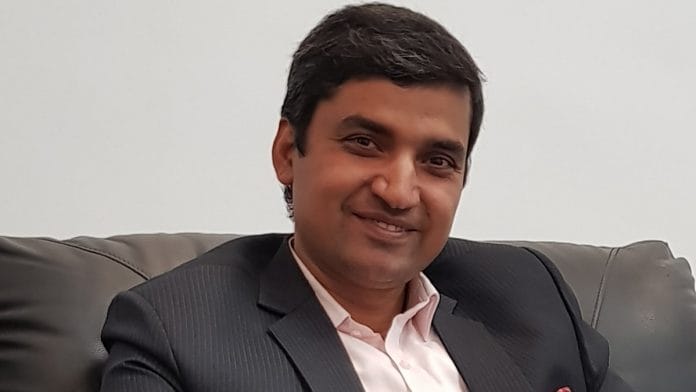Arun Sangwan has fined scores of public information officers for not providing information, also ordering disciplinary action against half-a-dozen of them.
Chandigarh: State information commissions are often considered a refuge for recently-retired bureaucrats, a sort of bridge that helps them tide over the sudden shock of powerlessness. Many hanker after a five-year tenure in the commission, which guarantees a government car, a hefty pay package and additional perks.
But for a young lawyer from Delhi to leave behind a lucrative practice and join the Haryana State Information Commission is almost unheard of. Arun Sangwan did just that… and how!
Sangwan, 37, has been labelled Haryana’s ‘terror commissioner’ because in less than one year he has got the public information officers (PIOs) of government departments scurrying at the mere mention of his name.
Having carefully studied every bit of the Right to Information Act to understand his powers, Sangwan has fined scores of PIOs for not providing information, also ordering disciplinary action against half-a-dozen of them.
And it does not stop there. Ten days ago, he issued bailable warrants against officials of several private corporate hospitals for not providing information.
“Private hospitals have been declared a public authority to provide information about all organ transplants taking place in the hospital. In this case, hospital officials refused to even accept the application seeking information,” said Harinder Dhingra, the RTI activist who had sought the information and moved the commission when he failed to get it. Bailable warrants can be issued under Section 18 of the act.
Wanted to join politics
Hailing from a family of lawyers in Delhi, Sangwan studied law from CCS University, Meerut. But instead of joining his father and brother in practice, he decided to join politics.
He joined Union minister Rao Inderjit Singh, who had a long association with the family.
When Singh left the Congress in 2013, Sangwan too left the party and supported the senior leader in creating his own outfit — the Haryana Insaaf Manch. Sangwan became its spokesperson.
Ahead of the parliamentary polls in 2014, when Singh joined the BJP, Sangwan too followed and became a media panellist.
Twice he tried to get a ticket to fight the assembly elections from the family’s home town Charkhi Dadri, but was disappointed. Now, he has almost said goodbye to politics.
“Politics is a game not suited to his nature,” said a close friend who did not wish to be identified.
In 2016, Sangwan was chosen as the legal member of a tribunal in the town and country planning department in Haryana, where he was posted for a year before joining the information commission in December 2017.
“In joining the commission, it was almost as if he had found his calling,” the friend said.
Also read: Haryana has a flashback as OP Chautala’s sons fight it out over father’s legacy
New spark in the commission
At 36, Sangwan was the youngest information commissioner ever, and the commission gained from his youthful idealism.
“Bureaucrats, when in service, are trained not to part with information. They continue to have the same mindset even after retirement, when posted in the commission,” a commission official told ThePrint.
“Also, they are biased in favour of government officials, and are not very keen to impose fines and start disciplinary proceedings. But Sangwan liberally uses his powers to ensure accountability and transparency in government functioning,” the official said.
“It was widely believed that the commission is just a post-retirement parking spot for IAS officers. Nothing much was happening and not much seriousness was associated with it. Those involved in the process of giving information under the Act had started taking things extremely lightly and in many cases, even when the PIOs were summoned by the commissioners, they would not bother to appear,” said the commission official.
“Now, life is back in the commission. As things stand today, it is taken seriously, and Sangwan is one of the most dreaded information commissioners in the state.”
A case in point was when Sangwan ensured that the state government parted with all the information on how much investment it had attracted at its much-touted ‘Happening Haryana’ summit in 2016. Various departments, including the Chief Minister’s Office, were refusing to give the information, and it was suspected that the summit was a failure.
For the public good
Sangwan told ThePrint that he had never planned to be in the commission.
“I live life as it comes. But I do believe that whatever you do, do it with honesty and hard work,” he said.
“The RTI Act is a very powerful tool in the hands of the public to make governments accountable and their functioning transparent. But it is sad that almost 90 per cent of the cases which come to the commission are those involving personal grievances,” he said.
“Public causes are very few. People need to know that the Act allows them to inspect files, access notings, even ask for samples of materials used by a public authority,” he added.
“Everyone in the commission is doing stellar work, and I can’t say that one is better than the other. We are all working towards the larger common cause of public good, and whatever is in public interest.”
Also read: Eye on Haryana polls, Arvind Kejriwal blames Punjab farmers for Delhi’s air pollution






